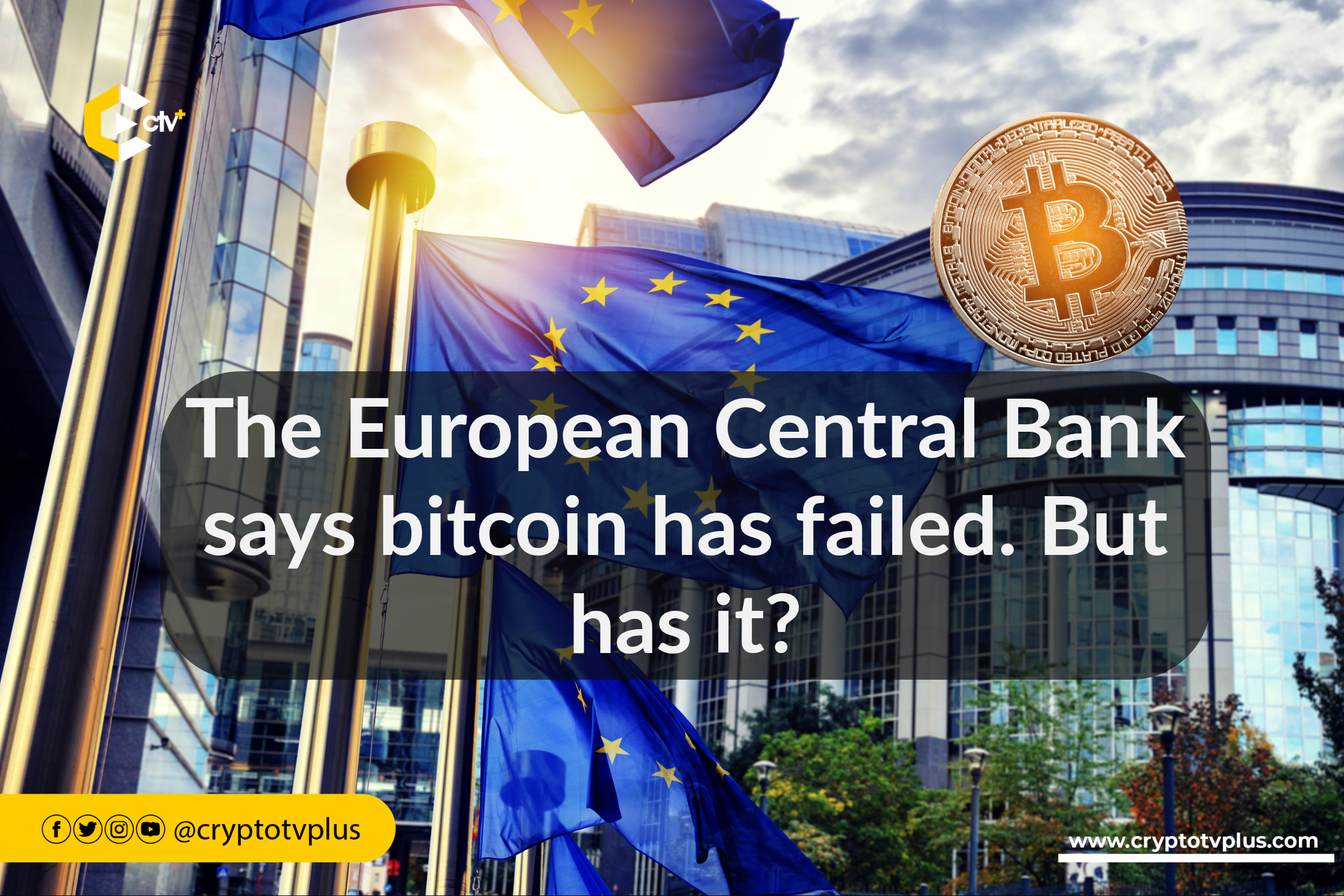News
The European Central Bank says bitcoin has failed. But has it?

The European Central Bank has cast a doubt on the ability of Bitcoin saying that the global cryptocurrency has failed to fulfill the promises and purposes tied to its existence.
It highlighted that despite recent approval for Bitcoin exchange-traded funds (ETFs) by the US Securities and Exchange Commission (SEC), concerns persist over Bitcoin’s viability as a means of payment or investment.
Bitcoin is a decentralized digital currency that operates outside the control of any one person, group, or entity, thus removing the need for third-party involvement in financial transactions. It was introduced to the public in 2009 by an anonymous developer or group of developers using the name Satoshi Nakamoto.
Bitcoin uses blockchain to secure transactions, can be bought on exchanges, exchanged for fiat currency, and used for purchases. It’s the largest cryptocurrency with a market cap over $1 trillion, ranking below established companies like Microsoft, Apple, Amazon, Nvidia, and Meta as of Feb 22, 2024.
Bitcoin ETF of no effect
After over a decade of being in existence, the US SEC approved its first Spot Bitcoin ETF on January 10, 2024. This decision is considered a landmark event for the digital-asset sector, as it broadens access to the largest cryptocurrency on Wall Street and beyond.
The approved ETFs include products from industry heavyweights such as BlackRock, Invesco, and Fidelity, as well as smaller competitors like Valkyrie and Bitwise. Yet, the ECB stated that the much awaited approval has not changed the fundamental issues surrounding Bitcoin.
The bank added that critics argue that Bitcoin remains costly, slow, and inconvenient for legitimate transactions, falling short of its initial promise as a global digital currency.
No true value behind bull-run triggered pricing
Additionally, the ECB said that the looming threat of a renewed boom-bust cycle in Bitcoin is a cause for concern, with potential collateral damage including environmental harm and wealth redistribution.
It had earlier spoken against the cryptocurrency in November 2022 with emphasis on its failure to function as a decentralized digital currency, the erroneous belief in its perpetual value increase, and environmental risks.
The ECB said that Bitcoin is considered less attractive to financially savvy investors due to its absence of cash flow, dividends, and social benefits as an investment.
It also noted that the recent surge in Bitcoin’s price, reaching over $52,000 from under $17,000 in late December 2022, is believed to be driven by expectations of changes in the US Federal Reserve’s interest rate policy, the upcoming halving of BTC mining rewards, and the SEC’s approval of Bitcoin spot ETFs.
While the expectations are rising from users in the crypto industry, ECB revealed that this rally may be short-lived, fueled by temporary factors rather than a sustainable shift in Bitcoin’s fundamentals.
Why Bitcoin looks strong
It went on to unveil three factors behind the strength of Bitcoin so far – ongoing price manipulation in an unregulated market, growing demand for the currency in criminal activities, and shortcomings in authorities’ judgments and measures.
Price manipulation has been a persistent issue, with dubious trading volumes and questionable pricing.
Bitcoin’s role in financing illegal activities, including money laundering and ransomware payments, has expanded despite market downturns.
The lack of effective regulatory intervention and misguided judgments by authorities contribute to Bitcoin’s continued use in illicit transactions.
In total, the ECB says that Bitcoin is unreliable and that its pricing movement is a weak measure of its sustainability. It also warned that the huge market capitalization of Bitcoin can have adverse effects on the economy.
Therefore, urgent regulatory measures are needed to guard against money laundering, cybercrimes, financial losses, and environmental damage linked to Bitcoin’s unregulated expansion.
Read also; Chiliz Chain unveils Tokenomics 2.0, PSG becomes latest validator

























Pingback: ECB pushes for unified digital ledger to streamline European capital markets | CryptoTvplus - Finance Funds Update